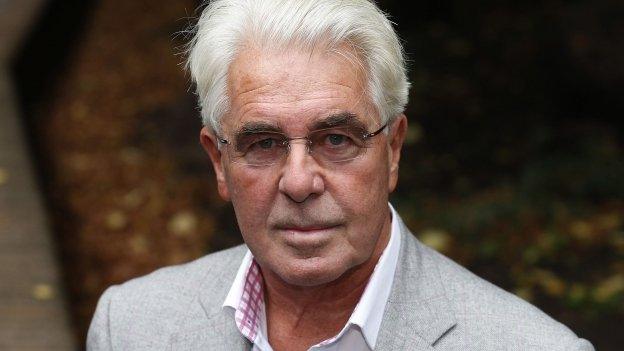Max Clifford guilty of eight indecent assaults
- Published
Max Clifford appeared with his family outside Southwark Crown Court
Publicist Max Clifford has been found guilty of eight indecent assaults on women and girls as young as 15.
The 71-year-old, from Surrey, was convicted of a string of assaults which happened over nearly 20 years.
He was cleared of two charges of indecent assault, while the jury at Southwark Crown Court failed to reach a verdict on another charge.
Clifford, who is the first person to be convicted under Operation Yewtree, was bailed and will be sentenced on Friday.
Judge Anthony Leonard QC warned him the fact he was granted bail was no indication of the sentence that would be passed.
Afterwards, Clifford posed outside court for photographers with his daughter Louise but ignored questions from reporters, saying: "I have been told by my lawyers to say nothing at all."
'Degrading'
Clifford was arrested by detectives from Operation Yewtree - the national investigation sparked by abuse claims against Jimmy Savile - in December 2012, and charged in April 2013.
He was arrested under a strand of the investigation concentrating on accusations not directly connected to Savile.
BBC home affairs correspondent Danny Shaw said the verdicts were "hugely significant" as the first Yewtree conviction.
Clifford victim: "When I think of him, he makes me shudder"
Afterwards, one victim said her faith in the justice system had been restored.
During the trial, prosecutors portrayed Clifford as a well-practised manipulator who promised to boost his victims' careers and enable them to meet celebrities in exchange for sexual favours.
Several women testified about his behaviour at his office in New Bond Street, central London.
He offered to get them casting appointments, pretending to be Hollywood bigwigs including Steven Spielberg, Albert "Cubby" Broccoli and Michael Winner on the phone.
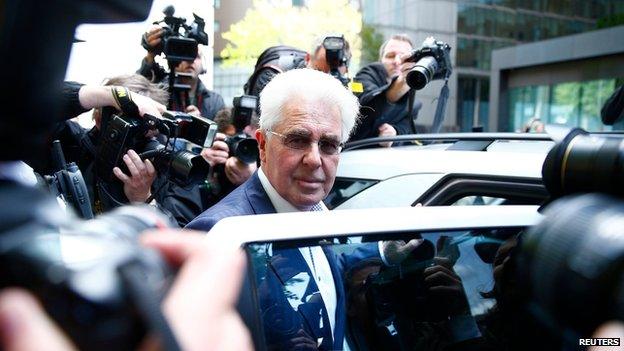
The court heard Clifford promised to boost his victims' careers in exchange for sexual favours
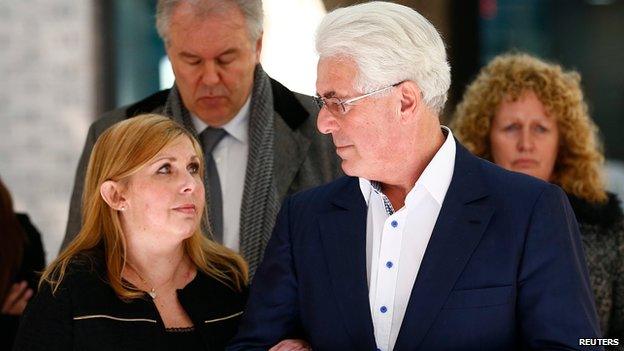
The publicist stood in front of reporters and photographers alongside his daughter, Louise, after leaving court
The jury found Clifford guilty of indecently assaulting four victims, including one who was abused from the age of 15 after she met him while on holiday with her family in Spain.
She said she was "blown away" when he told her she "could be the UK version" of Jodie Foster, and felt unable to say no when he asked her to take off her top and bra.
He forced her to perform oral sex on him and indecently assaulted her.
'Nightmare'
Decades later, the victim wrote Clifford an anonymous letter, which police found in his bedside table when they searched his home.
In the letter she accused Clifford of taking pleasure in degrading her, giving him an "A+ in grooming children".
After the trial, she told the BBC she still shuddered and felt ill when she thought about Clifford and that it had been sickening to see him "create a persona of a respectable, high-profile man who was lauded by the media".
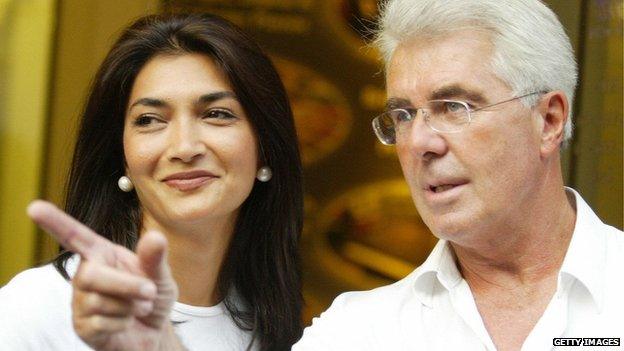
Faria Alam sold the story of her fling with football manager Sven-Goran Eriksson
"I can't thank the police and the CPS enough for their endeavours to get justice for me and everyone else," she added.
The second victim, an extra in the Bond film Octopussy, was targeted at Clifford's office in 1981 or 1982 when she was 19. Clifford told her actor Charles Bronson wanted pictures of her in her underwear to help him decide if she could be in a film.
She said she spoke to a man claiming to be Mr Bronson on the phone, then Clifford pinned her down on a sofa but she fought him off and left.
Another girl, a teenage model, said Clifford groped her when she went to his office for career advice in 1983, bragging that he could get her a part in a James Bond film.
She was told to pose in her underwear and described how Clifford tried to force her to perform oral sex.
The victims also included a dancer who received a phone call while she was at a nightclub from someone pretending to represent producer Broccoli and was told to find out whether Clifford was circumcised.
She said she feared she would be raped when Clifford took her into the toilet and assaulted her.
Clifford repeatedly denied the claims, calling his arrest and prosecution "a nightmare" and branding his accusers "fantasists".
Victims' 'courage'
Clifford was a key player in the British media in the 1990s and 2000s, orchestrating tabloid revelations about the sex lives of politicians, including David Mellor and John Prescott, sporting figures such as David Beckham and Sven-Goran Eriksson, and actors including Jude Law.
Speaking outside court, Jenny Hopkins, deputy chief crown prosecutor for CPS London, said the verdicts had provided "a long-denied justice".
She said the CPS would now consider its position on the verdict the jury was unable to come to a decision on.
"I would like to thank these victims for having had the courage to come forward and give evidence.
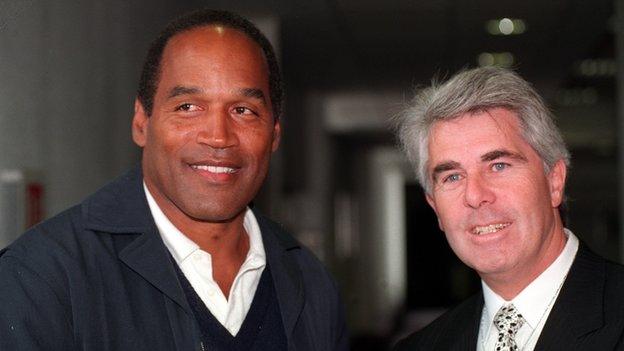
OJ Simpson was one of Clifford's most controversial clients
"The victims of sexual abuse, whenever it may have taken place, should know that police and prosecutors will listen", she said.
DCI Michael Orchard, from the Metropolitan Police, also paid tribute to Clifford's victims, saying he hoped they felt they were "listened to".
Peter Watt, director of National Services at the NSPCC, said Clifford had been "unmasked as a ruthless and manipulative sex offender who preyed for decades on children and young women".
"Clifford was a rich and influential man who dined with the stars but the way he manipulated and groomed his victims is typical of many sex offenders.
"He exploited their vulnerabilities, using lies and coercion to get what he wanted," he said.
David Mellor: "It was what (Clifford) did to me back in 1992 that really put him on the radar."
'Concocting lies'
David Mellor, the former Conservative MP and minister, branded Clifford a "sleazeball", saying he "stands condemned by his own words".
Clifford was known for brokering deals with the tabloids for kiss and tell stories, including Mr Mellor's affair with Antonia de Sancha.
Mr Mellor told BBC Radio 4's PM programme he felt the press had not taken rumours about Clifford's private life seriously because he fed them stories.
He accused him of "concocting lies" during his career, adding that "he did it for money, but also, you know, he did it with malice and cruelty, which is why he deserves no sympathy".
Lawyer Liz Dux, who represents more than 150 people who have made complaints under Operation Yewtree, said the verdicts proved the investigation was not a "celebrity witch-hunt".
Sir Keir Starmer, former director of public prosecutions, meanwhile told the BBC that the guilty verdicts were "significant", showing that, "if a case is properly brought, it can succeed."
"For many years there was a perception perhaps that you would never succeed in one of these cases if the accused was a celebrity," he said.
However, he added: "It doesn't matter who you are, in the end we do have a system that is capable of delivering justice for victims in situations such as this."
- Published28 April 2014
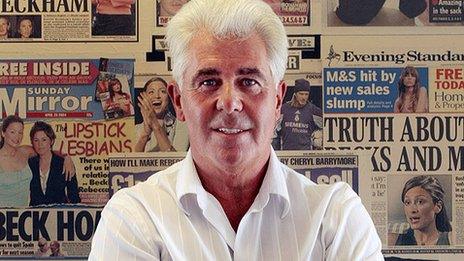
- Published28 April 2014
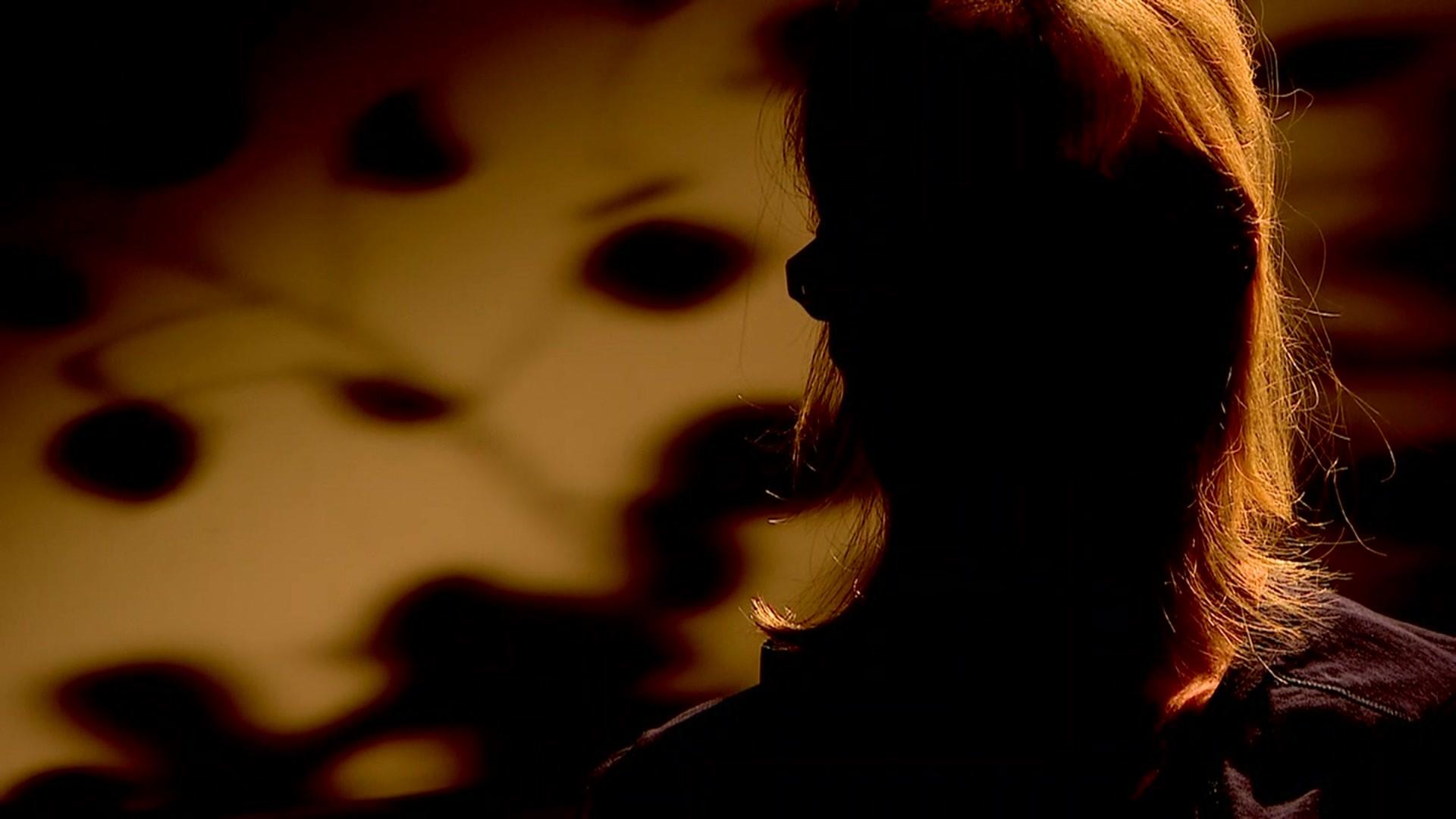
- Published28 April 2014
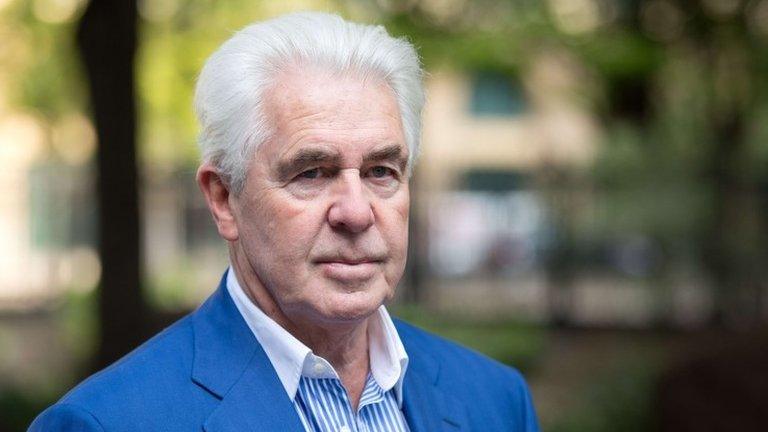
- Published28 April 2014
